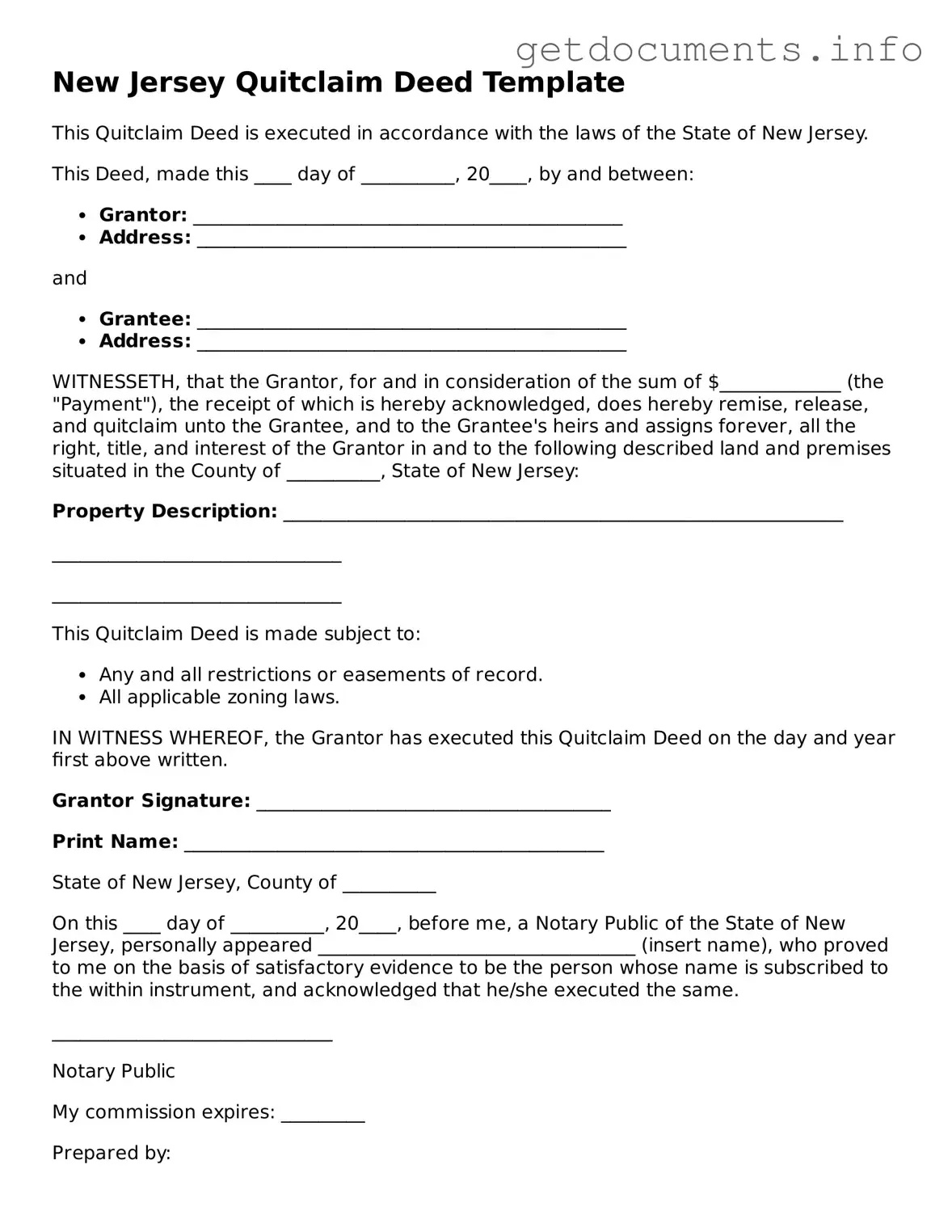Free Quitclaim Deed Template for New Jersey
A Quitclaim Deed is a legal document used to transfer ownership of real estate from one party to another without making any guarantees about the title. This form is commonly used in New Jersey to facilitate property transfers between family members or in situations where the seller does not wish to make warranties about the property’s condition. To complete the process, fill out the form by clicking the button below.
Access Quitclaim Deed Editor

Free Quitclaim Deed Template for New Jersey
Access Quitclaim Deed Editor
Got places to be? Complete the form fast
Fill out Quitclaim Deed online and avoid printing or scanning.
Access Quitclaim Deed Editor
or
⇩ PDF File
